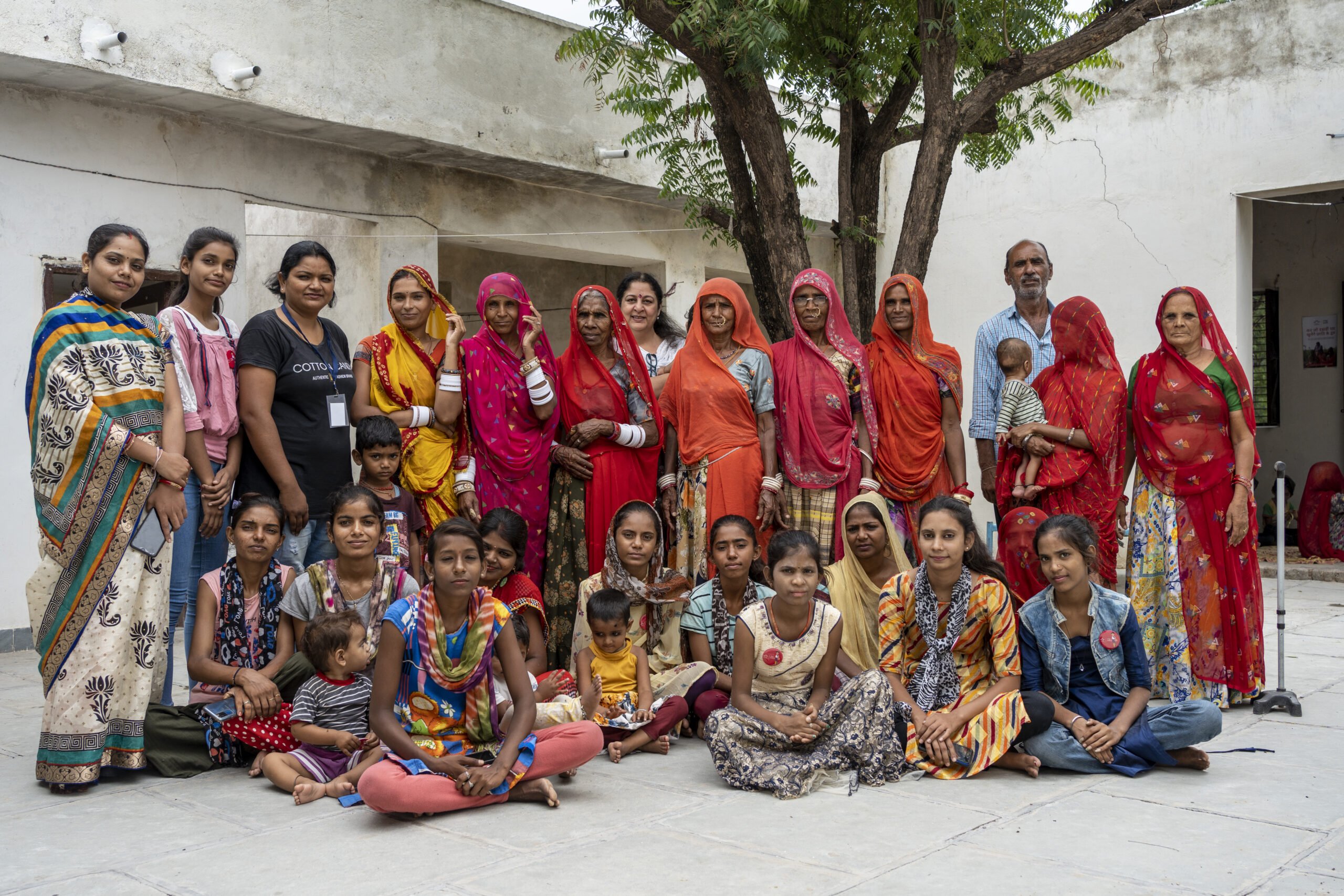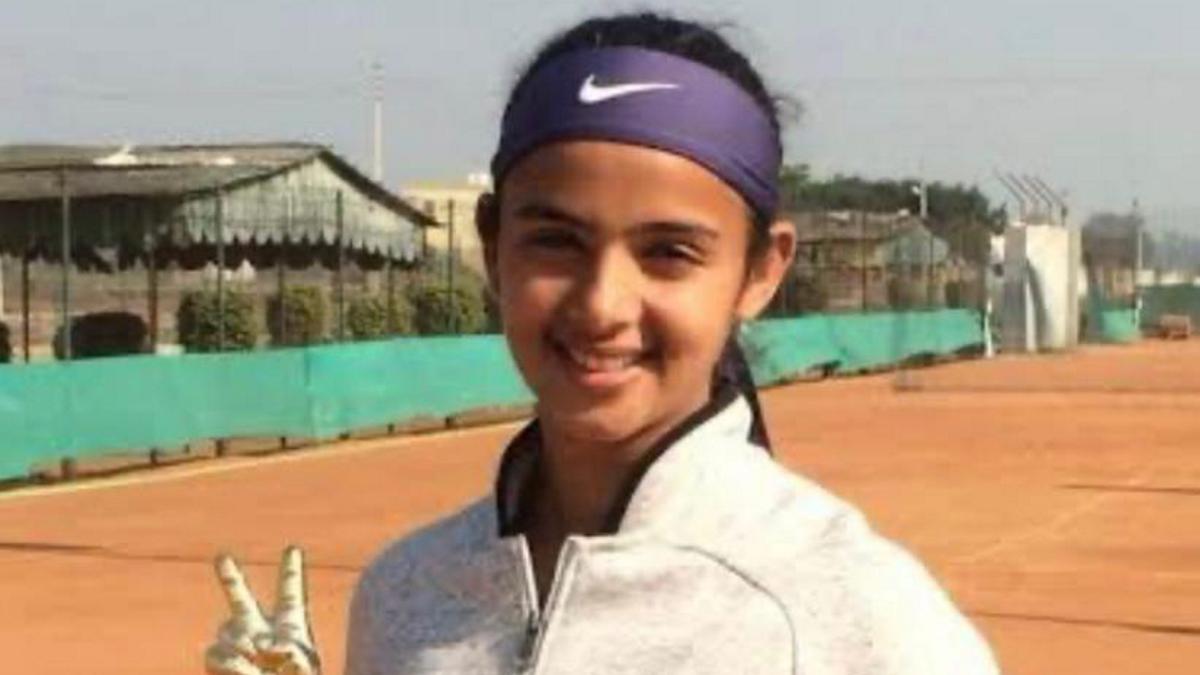Around 66 million girls in India between the ages of 15-25 are at permanent risk of never being able to complete their secondary education. Additionally, 48% of girls forced to drop out of school will likely never re-enrol. Among all developing countries, India’s literacy rate—while considering the adolescent girls who have completed their secondary education—is one of the lowest. The low turnout is because most adolescent girls who drop out eventually work in the informal sector. As a result, their overall contribution towards the country’s GDP is also meagre.
Through their case studies, Sociologists Renu Singh and Protap Mukherjee attempted to inquire about the reasons behind the girls’ discontinuation of schooling. They examined that “Marriage was the top reason for most girls leaving school, while absence from school/truancy, followed by domestic and paid work, emerge as crucial reasons for children discontinuing education.”
Adolescent girls in India don’t just need access to education but also require a support system to help them finish their education. The Secondary School Certificate, a requirement for entry-level jobs in India, debars the girls who have dropped out early from the formal education system. In turn, they lose their financial independence and the agencies accompanying it. The need of the hour is an active catalyst assisting them in acquiring the required qualification. Constantly pushed towards the margins, do these girls who have been stopped from completing their education not deserve a second chance?
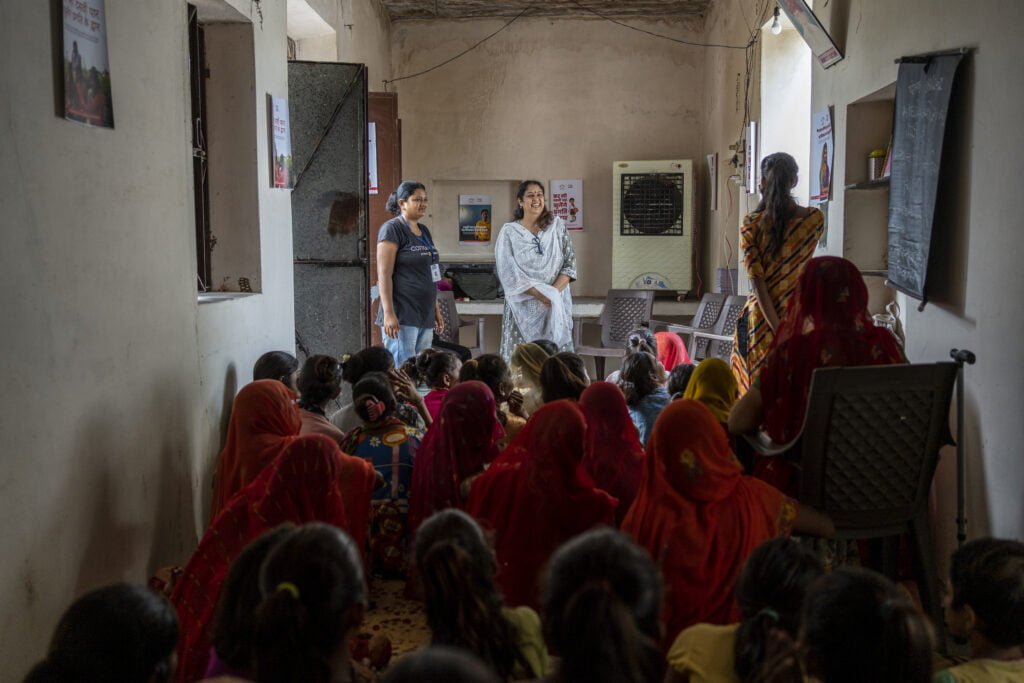
Through their case studies, Sociologists Renu Singh and Protap Mukherjee attempted to inquire about the reasons behind the girls’ discontinuation of schooling. They examined that “Marriage was the top reason for most girls leaving school, while absence from school/truancy, followed by domestic and paid work, emerge as crucial reasons for children discontinuing education.”
Also Read: Revisiting The Initial Phase Of The Education Of Girls In British India
Gendered labour in India is mostly invisible in the domestic space or incredibly demanding and unpaid. When these girls are forced to balance their work and education, they feel compelled to give up on the latter. Yale Scholar Jenna Cook mentions in her article, “While the government can monitor factories and businesses, it is much more difficult for them to monitor households. This leads to large numbers of domestic labourers, who are mostly young girls. These girls may miss school or struggle to keep up with school work, sometimes forcing them to drop out.”
Other reasons that stop the girls from completing their education include early marriage followed by childbirth, academic setbacks such as their inability to pass examinations or qualify for the next grade, and constant relocation to new places. These are exacerbated by patriarchal family setups that don’t prioritise the education of girls, lack of financial resources or poverty, and policy gaps in how this issue is addressed. The inability of adolescent girls to attend school is also impacted by inadequate toilet and hygiene facilities for those who have reached the menstruating age.
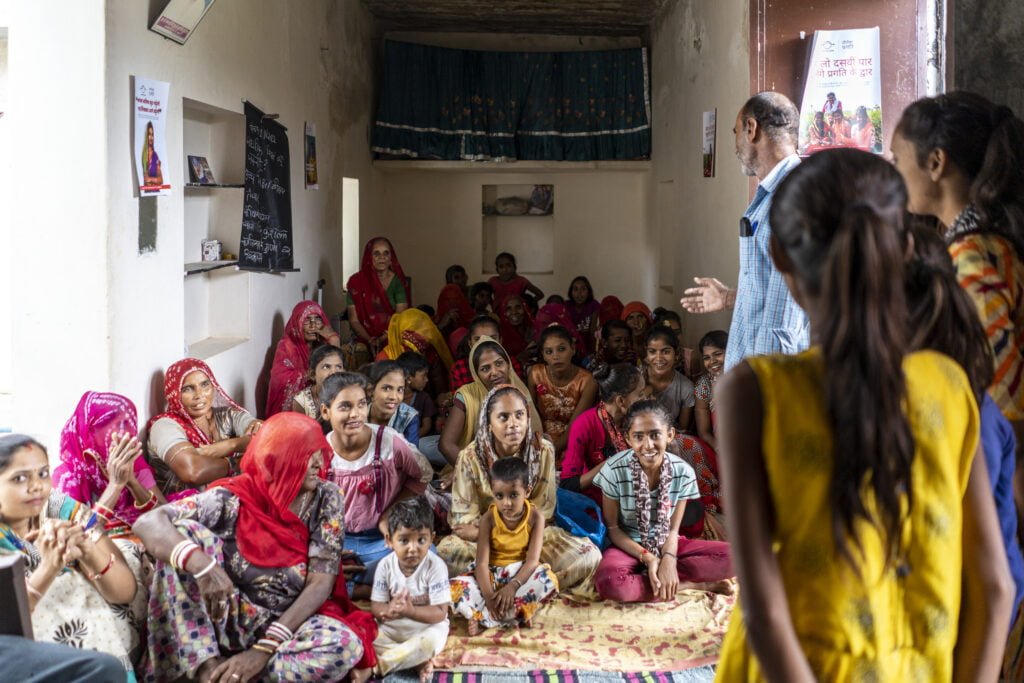
Another looming factor that impacts the abilities of young girls to complete their education is child labour. Gendered labour in India is mostly invisible in the domestic space or incredibly demanding and unpaid. When these girls are forced to balance their work and education, they feel compelled to give up on the latter. Yale Scholar Jenna Cook mentions in her article, “While the government can monitor factories and businesses, it is much more difficult for them to monitor households. This leads to large numbers of domestic labourers, who are mostly young girls. These girls may miss school or struggle to keep up with school work, sometimes forcing them to drop out.”
Also Read: What AISHE Report Says About Higher Education In Post-COVID India
Educate Girls are empowering women like Sayali and Sita to turn their lives around through their Project Pragati aimed at providing adolescent girls with a second chance. Started in 2021 during the Covid-19 lockdown, Project Pragati aims to empower adolescent girls by giving them the second chance they deserve for them to be able to complete their education. The organisation stands strong beside the girls as the support system they require to complete their education and gain financial independence.
Educate Girls addressed the issue of girls being sucked into the poverty trap and patriarchy by providing them with a second chance. The organisation believes that all young girls who haven’t been able to complete their education deserve a second chance, irrespective of the circumstances that have stopped them. Siyali (name changed) from Jaipur, India, was coerced into getting married and quitting her education at an extremely young age owing to her parents wanting to get the girl and her five sisters married, as that would save marriage costs.
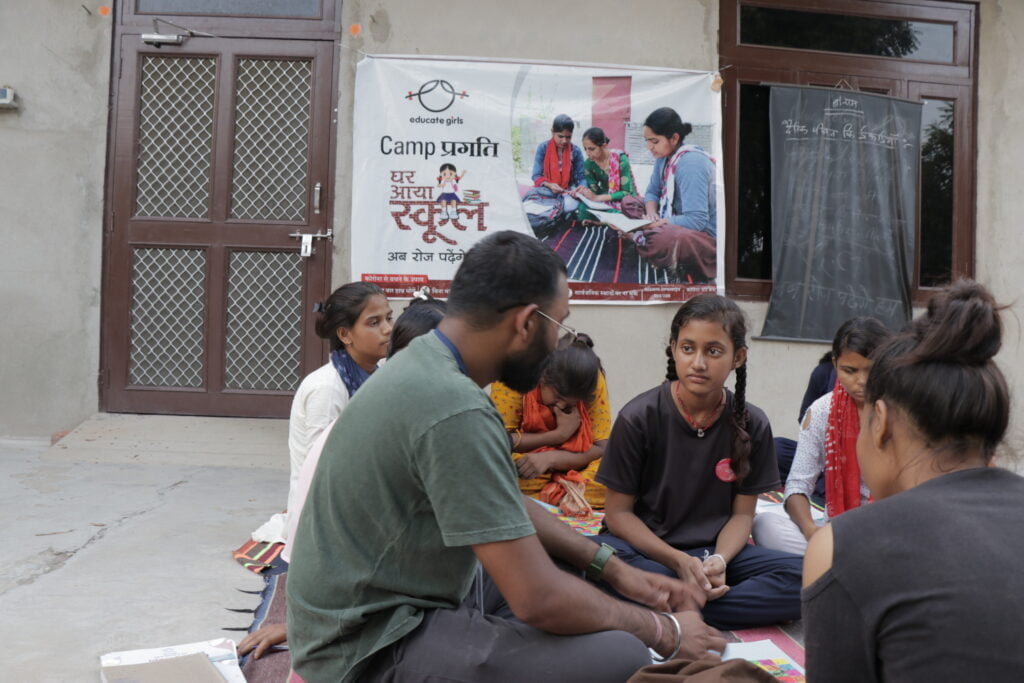
Unfortunately, Siyali’s husband died soon after she gave birth to their child, and the responsibility of her entire family suddenly fell upon her shoulders. She had no other option but to look for a job to support her loved ones financially. While she did find one in Anganwadi, she was told that she needed a Grade 10 certificate to be eligible for it. It can be understood that providing girls with the essential opportunity to finish their Grade 10 degrees can help elevate their families out of poverty.
Also Read: Gender In Academia: Women In Higher Education Must Be Retained And Transformed Into Workforce
Similarly, Sita from Jodhpur was forced to get married at 15, soon after she completed her 9th grade. However, she was abandoned by her husband when she was 17. An opportunity for a second chance suddenly opened up in front of Sita. Not backing down, she took up boxing which was always her passion. Her efforts led her to become a state-level boxing champion, currently coaching five children. She is also attempting to receive her Grade 10 certificate to avail herself of more opportunities and eventually set up her boxing academy.
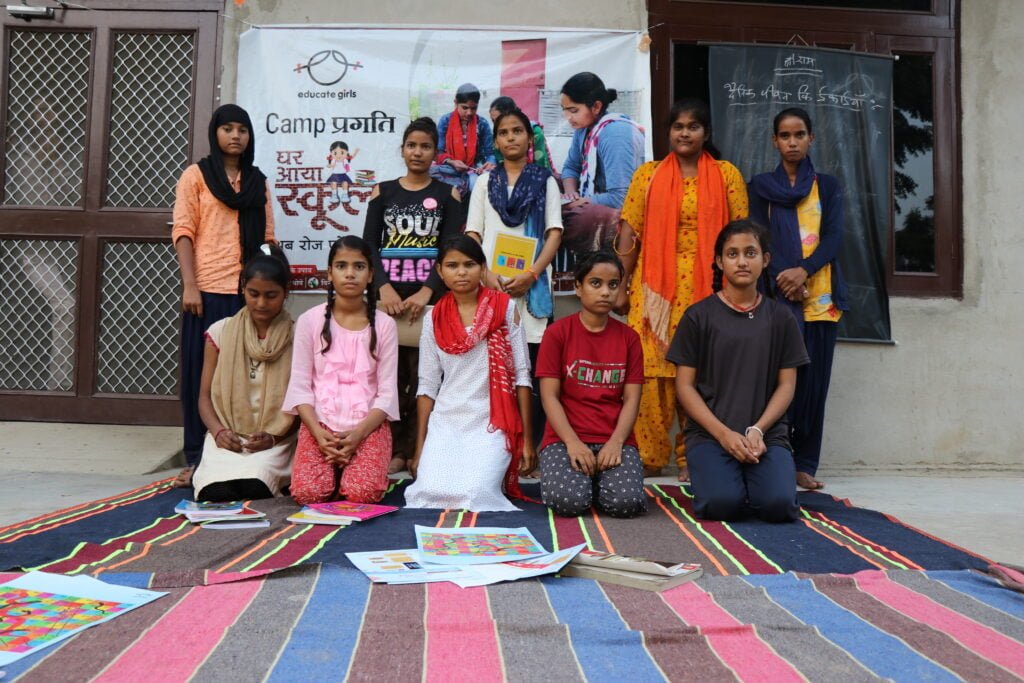
Educate Girls are empowering women like Sayali and Sita to turn their lives around through their Project Pragati aimed at providing adolescent girls with a second chance. Started in 2021 during the Covid-19 lockdown, Project Pragati aims to empower adolescent girls by giving them the second chance that they deserve for them to be able to complete their education. The organisation stands strong beside the girls as the support system they require to complete their education and gain financial independence.
You can follow Educate Girls on Facebook, LinkedIn, Twitter, Instagram and YouTube
About the author(s)
Upasana is a master’s student at SOAS, University of London where she is pursuing a degree in South Asian Area Studies. She is an avid blogger and a film reviewer which means that she is currently struggling to balance her time between Netflix and her grad school commitments. When not reading, writing or binge-watching something, she can be found having deep conversations with her close friends or complete strangers about the most random things under the sun.
